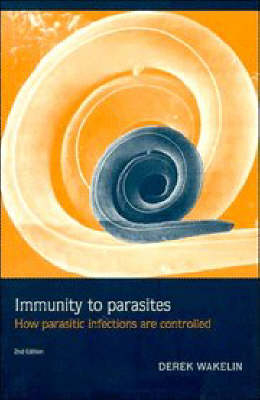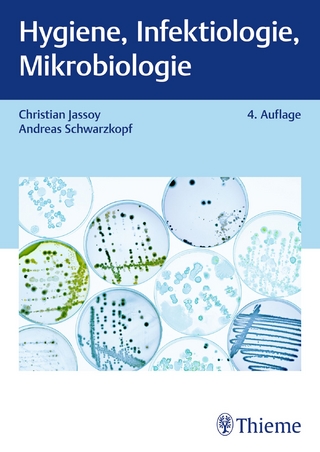
Immunity to Parasites
How Parasitic Infections are Controlled
Seiten
1996
|
2nd Revised edition
Cambridge University Press (Verlag)
978-0-521-43635-9 (ISBN)
Cambridge University Press (Verlag)
978-0-521-43635-9 (ISBN)
Parasites cause many important diseases in humans and domestic animals. By concentrating on selected infections, Immunity to Parasites provides a clear account of how hosts can control parasites through immune responses and of how parasites can evade immunity. This second edition includes an expanded section on anti-parasite vaccines.
Parasites cause many important diseases in humans and domestic animals, malaria being an example. Parasites have evolved to exploit hosts' bodies whereas hosts have evolved immune systems to control infections. Host-parasite interactions therefore provide fascinating examples of evolutionary 'arms-races' in which the immune system plays a key role. Modern research in immunoparasitology is directed towards understanding and exploiting the capacity to develop effective anti-parasite immunity. By concentrating on selected infections where research has made significant progress, Immunity to Parasites provides a clear account of how host immune responses operate and how parasites can evade immunity. The experimental basis of this research is emphasised throughout. This completely updated second edition includes an expanded section on anti-parasite vaccines. The text is aimed at undergraduates and postgraduates with interests in either parasitology or immunology and provides introductory sections on these topics to lead the reader into the later chapters.
Parasites cause many important diseases in humans and domestic animals, malaria being an example. Parasites have evolved to exploit hosts' bodies whereas hosts have evolved immune systems to control infections. Host-parasite interactions therefore provide fascinating examples of evolutionary 'arms-races' in which the immune system plays a key role. Modern research in immunoparasitology is directed towards understanding and exploiting the capacity to develop effective anti-parasite immunity. By concentrating on selected infections where research has made significant progress, Immunity to Parasites provides a clear account of how host immune responses operate and how parasites can evade immunity. The experimental basis of this research is emphasised throughout. This completely updated second edition includes an expanded section on anti-parasite vaccines. The text is aimed at undergraduates and postgraduates with interests in either parasitology or immunology and provides introductory sections on these topics to lead the reader into the later chapters.
Preface to the Second Edition; Preface to the First Edition; 1. Parasites and parasitism; 2. The immune response; 3. Experimental immunoparasitology; 4. Intracellular Protozoa; 5. African trypanosomes; 6. Schistosomes; 7. Gastrointestinal nematodes; 8. Nematodes which invade tissue; 9. Ectoparasitic arthropods; 10. Immunological control of parasitic infections; References.
| Erscheint lt. Verlag | 13.8.1996 |
|---|---|
| Zusatzinfo | 29 Tables, unspecified; 16 Halftones, unspecified; 64 Line drawings, unspecified |
| Verlagsort | Cambridge |
| Sprache | englisch |
| Maße | 152 x 229 mm |
| Gewicht | 340 g |
| Themenwelt | Medizin / Pharmazie ► Medizinische Fachgebiete ► Mikrobiologie / Infektologie / Reisemedizin |
| Naturwissenschaften ► Biologie ► Mikrobiologie / Immunologie | |
| ISBN-10 | 0-521-43635-4 / 0521436354 |
| ISBN-13 | 978-0-521-43635-9 / 9780521436359 |
| Zustand | Neuware |
| Haben Sie eine Frage zum Produkt? |
Mehr entdecken
aus dem Bereich
aus dem Bereich
und Erste Hilfe an Bord
Buch | Softcover (2024)
MWV Medizinisch Wissenschaftliche Verlagsgesellschaft
39,95 €


